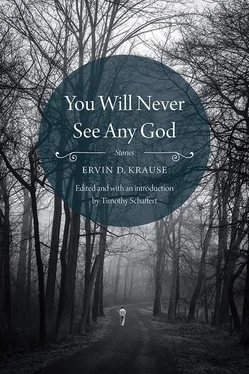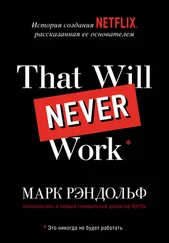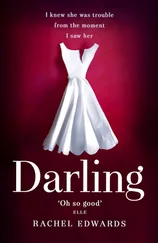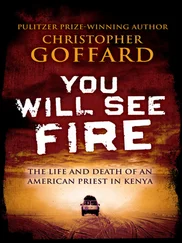I had tried, I thought; feebly and without hope I had tried, and it was not good enough, and I was angry. I slapped my bare hand and my mitten together and I went back to the fire.
“Did you have to bring the children?” I shouted at Heron. “I don’t care what happens to you. You can go to hell. But did you have to bring them?”
Heron still lay stretched on the ground, his face in the snow, and the snow around him was pinked by his blood. I beat my hands together, and I remembered it all, especially the children, and I looked at Heron, and I could not contain that feeling any longer. I went over to him and I swore loudly at him and I kicked him hard, very hard, in the side, at the place where the ribs end. His breath came out of him in a contorted gasp, a kind of bark. I was glad. I wanted to hurt him.
“Get up,” I shouted at him. I took his collar and jerked him, when he did not move quickly. Heron braced himself on his hands, and he groaned, and lifted himself painfully. He clutched his side and he stood up and walked feebly and slowly, as if he had become aged and senile in that moment. I followed him, threatening him, and he looked at my coat collar and not into my eyes, and he did not even care then. He would not have cared if I had killed him. He slumped down upon the log where the little girl had sat, and he bent himself at the waist, holding his side and rocking back and forth against the pain, and moaning.
My brother took my arm and pulled me away from Heron. “Let him alone,” he said. “He has lost his wife. Let him alone.”
“Yes,” I said.
I needed to do something, and I got an axe and I chopped a considerable pile of firewood, and I threw all the wood on the fire at once, until there was a very large blaze. I didn’t care if the bodies melted and the schoolhouse burned.
We waited forty-five minutes more for the sheriff to arrive and no one said a word in all that time. The only sounds were of my axe and of the snapping fire, and of the wind driving its bitter coldness over us.
The sheriff came in a truck with chains, up the track that Rudy Heron and his tractor had made. He sprang out of the truck before it stopped and he came over to us. He was a spry old man who looked like an insurance salesman, with his smooth and dimpled face and his goldrimmed spectacles. His face was high-colored in the cold, and it was round and pink, like a pale and fat and squashy tomato. He knelt to examine the bodies, and he murmured things to himself and made notes in a pad, and his face remained rosy and calm.
“About the newspapers…” my brother said.
“It has to be reported,” the sheriff said.
“Just that they were sitting there and they died of monoxide poisoning, and nothing about night,” I said. “It happened in broad daylight.”
“They’ve been dead quite a while,” the sheriff said. “Late last night, probably.” He sucked between his gold teeth. “What is your interest in all this?” he asked me.
“It’s not in them; it’s the other people,” I said.
The sheriff looked at me a moment and then he nodded. “All right,” he said. “That’s how you found them then?”
“Yes. Just sitting,” I said.
“In broad daylight, sitting on a country road, stranded in a blizzard, and the engine was running to keep them warm,” the sheriff murmured. He pursed his lips and made some notes in the pad.
“Just like that,” I said. It was a foolish attempt, I thought, and hopeless, and everyone would know and talk and snicker, but it made me feel a little better.
The sheriff tried to talk to Heron, but Heron would not say anything at all. He groaned in that steady hurting sing-song way, as he had been for nearly an hour, and his eyes rolled strangely, and he held his side.
Someone told the sheriff that Heron had a sister in Charleston, and the sheriff said that was good, they could take him there, since he was in a bad way.
They loaded the bodies onto the truck, and with the bodies out of sight, and with Heron in the cab with the sheriff, the coldness came on all of us again. We felt the hard wind, and some of the farmers looked at the sun and talked of getting home for dinnertime.
My brother asked me if I wanted to go along to town in the truck, to the undertaker, but I said no.
“We made a mistake,” I said. “We should have taken them in by ourselves, before anyone knew about them.”
“We might have got into trouble,” my brother said. “The sheriff had to be here.”
“It was a mistake,” I said. “No one should have known about it, especially the children. We did it badly; it was our fault.”
“You know how it is in this country. Everyone would have found out and talked about it anyway. We did everything we could do.”
“We didn’t protect the others,” I said. “It was a mistake.”
My brother looked at me, and he spread his hands, and I knew that he understood what I was saying. He turned and went to the truck.
“If you see Conrad Wenzel’s wife, be careful with her,” I said after him. “Don’t tell her how it was.”
“She will know all about it already,” he said. “It will be all right with her anyway. Women are tougher about these things than men.”
My brother got into the truck and it turned around and went back up the road. The farmers watched the truck go, and then they got on their tractors and drove up the long hill, to go to their warm houses and their dinners and their talk.
The wind was fierce and the fire had died, and I let the last few logs sizzle against the blowing snow. The car stood beside the building, and the open door was swinging in the wind. The snow drifted into the car, whitely and cleanly. I thought of closing the door, but the window was broken anyway, and the snow could not be kept out. It did not make any difference. The snow and the cold and the wind had killed them, and now it would cover everything, coldly and cleanly and treacherously, and only the cold and falsely clean and treacherous minds of the people would remember it all.
I was alone down there, and I felt the chill of the place, and I wanted to get away. I started the tractor and drove over the fence-line and across the hollow. Behind me, the tracks were filling up with the fine hard crystals, and the fire was out, and the schoolyard was twisted and reshaped and very white. It was as if there had never been anyone there, but the wind and the winter snow.
Up from the road where they passed they could see the tiny house, gray where the weather struck, surprisingly white in tips beneath the darkened eaves, the house a sudden box on the expanse of land that rode the horizon like a plateau up from the road.
“Who lives there?” one of the twins, the thin-faced one, asked.
“The Widow O’Neill,” the old man said. He drove the Model-A Ford of course, the furious-lipped mother on the other front seat, the four brothers in back, Werner the oldest, Walter, and the twins of twelve, Herman, the thin-faced one, and Henry, the round-faced one.
They passed the lane and the old and creased mailbox, the box without name or sign, open to the wind as if nothing had ever been received or expected, the lane width of one car, straight up the low incline, turned sharply up there, ran back of the house, ditch on either side.
“Don’t look like anybody lives there,’’ Herman said.
“She’s there. Sometimes they don’t see her for a month or more,” the father said.
“Irish trash,” the grim-faced mother said.
“The Nystroms do her farming, don’t they?” Werner the oldest said.
“Ya,” the father said.
“Boy, I wouldn’t go over there for anything,” Werner said.
“Why not?” Herman asked, cranking back to watch from the square rear window.
Читать дальше











